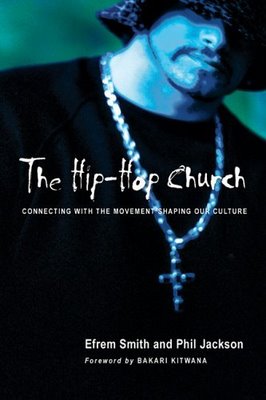Stop Blaming Hip-Hop For What Probably Goes On At Your Church

Last week my friend, and fellow BYP blogger, wrote a gripping piece about the omnipresence of homophobic lyrics in hip-hop through the lens of Tyler, the Creator. Jonathan’s post made me think again about what role I as a listener, and other hip-hop fans have in combating homophobia and sexism within this space. I began to think about a course I took a few years ago entitled “Black Feminism” and how and if a feminist praxis can fit into the hip-hop sphere. What I came to realize is that while hip-hop is laden with sexist and homophobic images and messages, it is not a societal outlier. In fact, hip-hop music like many other genres is merely a byproduct of society.
Essentially, rap is inextricably linked to society at-large, which in and of itself espouses male privilege, heterosexism and nihilism. Hip-hop music was not created in isolation in a social and cultural vacuum, but rather it is a byproduct of unique cultural idiosyncrasies that were birthed in South Bronx in the late seventies and early eighties. Underneath the “b-boying, “mc-ing”, “dj-ing”, and “graffiting”, existed patriarchy, sexism, and misogyny. Black folks who came of age during the post-civil rights era are commonly referred to as members of the hip-hop generation. They lived in a temporal context where the public discourse had shifted from seeking incorporation into the American polity, to seeking redistributive policies that more fairly allotted government benefits to the most marginalized segments of the population. As such, members of this group had very different outlooks on the social landscape of the country than their foremothers and forefathers. Arguably, hip-hop, both the music and culture, are responsible for the vastly different outlook. Yet, although perceptions about society may diverge from that of the past, much of the “anti-social” behavior that is constructed to be viewed as peculiar to hip-hop are merely reflective of many bastardized social mores that pervade in the Black community.
Filmmaker Byron Hurt Discusses his critically acclaimed documentary “Hip Hop: Beyond Beats and Rhymes”
httpv://www.youtube.com/watch?v=d-ZXMIElRmg
In self-proclaimed Black male feminist, Mark Anthony Neal’s text, New Black Man, he uses Black religious institutions to examine the hypocrisy in the Black community as it concerns hip-hop. Neal points out that although Black leaders waste no time lambasting hip-hop for the public degradation of Black women they are less likely to critique themselves and speak out against the sexism that exists within their institutions and movements. Although there are not usually scantily clad women gyrating in their Sunday hats in front of the preacher’s pulpit, there are pastors who spew sexist and misogynistic rhetoric, which is just as fulsome. Even more abominable, there are pastors who won’t allow women to set foot in the pulpit. It should be no surprise then that many rap songs are laden with lyrics that berate and question the humanity of Black women. A Black feminist analysis should not merely dismiss hip-hop as an offensive and sophomoric art form, but rather it should examine the culture in which it was created. Essentially, hip-hop is a product of its environment. By no means should a Black feminist analysis exonerate the rappers, producers, videographers, and music executives who work in concert to perpetuate the vicious cycles of misogyny and androcentrism, however solely blaming them only points to part of the problem.
The tacit acceptance of these rigid roles is perpetuated by the notion that men are in the foreground while women should remain in the back. When Minister Louis Farrakhan publicly supported the acquittal of Mike Tyson on a rape charge, he perpetuated the notion that secondary marginalization is acceptable. In his comments surrounding the incident, Farrakhan tried to make light of the situation by asking, “What do you expect to happen when you put a fox in a hen house? “ At issue was not a woman who had possibly been sexually abused; it was about seeking the vindication of a beloved Black athlete who had been tripped up by an opportunistic seductress. In many cases protecting prominent Black men, even when they are clearly culpable of sexual violation of a woman is more important than anything in the Black community. Similarly, Anita Hill was criticized by many Black folks as being a “race traitor” and trying to stop the confirmation of a Clarence Thomas, a Black man, from being confirmed as a Supreme Court Justice.
Anita Hill Testimony
httpv://www.youtube.com/watch?v=B55icuOXOHk
It is easy to dismiss hip-hop as a crude and offensive art form. However, underneath the scantily clad women, insecure men, and ostentatious consumerism lies an art form with unlimited potential. If you are a true hip-hop fan you should be committed to eradicating all vestiges of oppression in society, which could help usher in a new and improved hip-hop where traditional patriarchal and heterosexist roles no longer exist.

